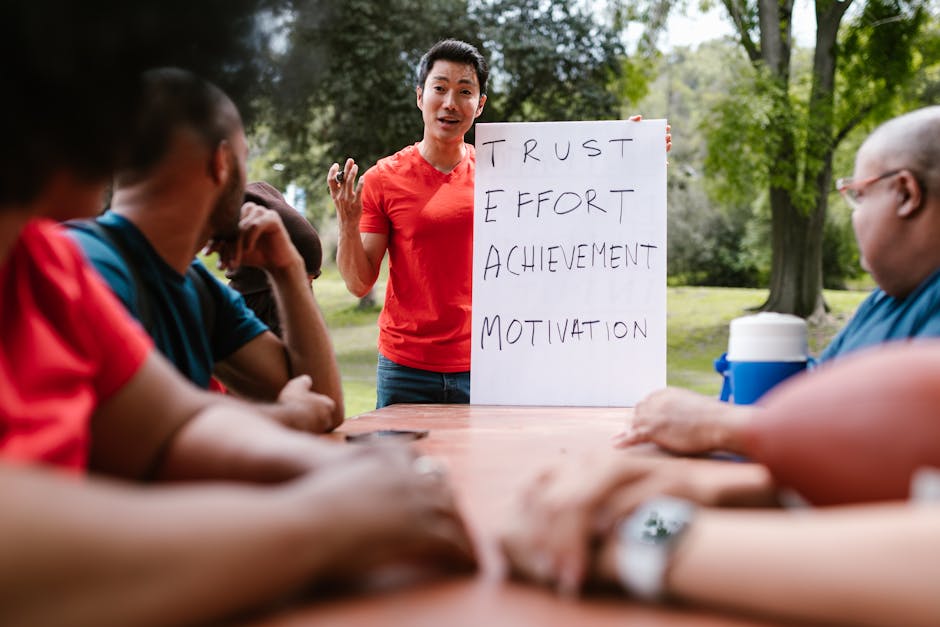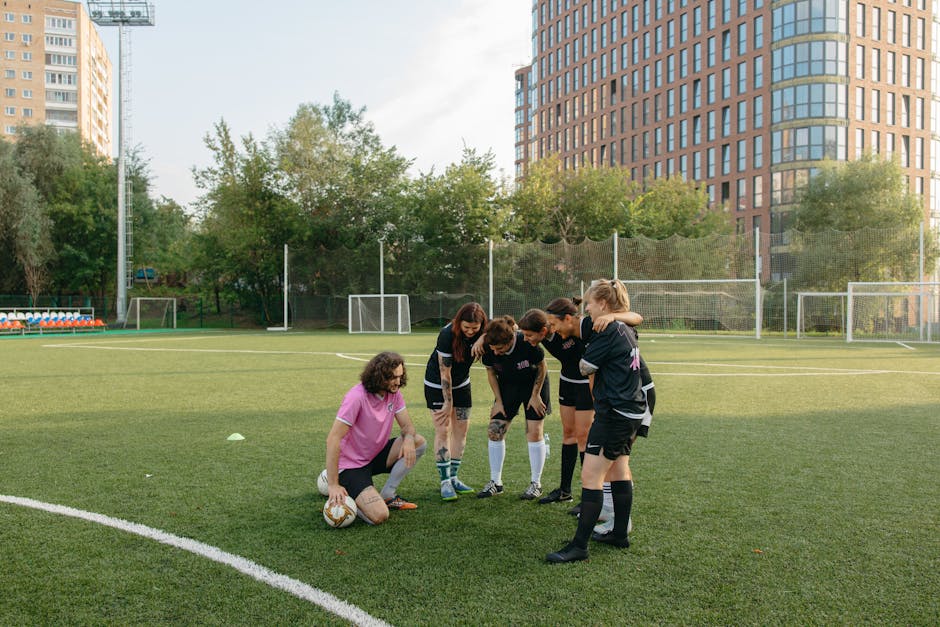Cognitive Coaching: Neuroscience Revolutionizing Athlete Performance
The worlds of sports and neuroscience are colliding in ways that were once considered the realm of science fiction. Imagine an athlete crossing the finish line not just with physical prowess, but with an unparalleled mental edge that optimizes performance under pressure. In "Cognitive Coaching: Exploring the Impact of Neuroscience on Athlete Performance and Decision Making," we dive into this fascinating intersection. Here, cognitive training techniques don’t just promise improved outcomes; they offer a blueprint for resilience, focus, and swift decision-making that can redefine how athletes train and perform.
Understanding the Neuroscience Behind Sports Performance

The brain, often overlooked in athletic training, plays a pivotal role in how athletes function. Current research highlights that areas of the brain responsible for decision-making, focus, and emotional regulation can be trained just as physically as muscles. Neuroscientists have identified specific cognitive functions that can be enhanced through targeted exercises—activities that not only enhance traditional training but could revolutionize how athletes prepare for competition.
For instance, cognitive exercises that improve working memory can help athletes process information and react more swiftly during games. A study linked enhanced cognitive processing speed in basketball players to improved operational performance on the court, indicating that a sharper mental response directly translates to better play. As we explore cognitive coaching strategies, it's essential to understand the practical implications these findings have on athlete training regimens.
The Role of Cognitive Training Techniques

So, what does cognitive training look like in the world of sports? Techniques often involve mental visualization, decision-making drills, and even mindfulness practices, designed to cultivate sharper awareness and emotional resilience. By harnessing the principles of cognitive behavioral therapy (CBT), coaches can guide athletes through scenarios that simulate high-stress environments, facilitating better real-time reactions.
For example, a soccer player might visualize themselves executing a perfect penalty kick under the pressure of a crowd, developing mental strategies to remain calm despite the overwhelming stakes. This not only boosts confidence but strengthens neural pathways for effective execution. Similarly, practices rooted in mindfulness help athletes maintain focus amidst distractions—vital for peak performance during critical moments in competition.
Expanding Emotional Intelligence Through Cognitive Coaching

Beyond decision-making and focus, cognitive coaching is increasingly being linked to emotional intelligence—an athlete’s ability to understand and manage their emotions and those of others. High emotional intelligence equips athletes to handle the chaotic nature of competitive sports, even allowing them to read their opponents better. For instance, research conducted by the Harvard Business Review indicates that emotional intelligence correlates strongly with individual performance in high-stakes roles—including athletes.
Incorporating emotional intelligence training into cognitive coaching opens a wealth of possibilities. Athletes learn not only to navigate their own stress and anxiety but also to empathize with teammates, significantly enhancing team dynamics. Here, cognitive coaching diverges from traditional methodologies, paving the way for team-wide improvements.
Resilience: The Mental Game Changer

As the competition intensifies, so does the challenge of maintaining resilience. Athletes oftentimes face mental barriers that can undermine their physical capabilities, especially during critical moments when the game is on the line. Cognitive coaching techniques address this head-on.
Research from Columbia University's Teachers College outlines various mental resilience strategies—including reframing negative thoughts and employing positive self-talk that athletes can use during contests. This approach not only fortifies mental stamina but also allows athletes to pivot from setbacks—turning failure into a learning opportunity rather than a defeat.
Real-World Applications of Cognitive Coaching

Several leading sports teams and organizations have begun to adopt cognitive training methodologies as cornerstones to their training regimes. For example, the NBA’s Detroit Pistons recently introduced cognitive training protocols emphasizing decision-making under pressure. Their innovative approach has triggered discussions among athletes and coaches alike, promoting broader acceptance of these practices across different sports.
Moreover, the world of esports has embraced cognitive training, integrating advanced analytical tools to sharpen decision-making in fast-paced gaming environments. The synergies between traditional sports and gaming underline how cognitive coaching can break down barriers, making it universally applicable.
The Future of Cognitive Coaching in Sports

As we navigate the rapidly evolving field of cognitive coaching, opportunities abound to merge advanced cognitive techniques with various sports disciplines. From individual athletes who can elevate their performance levels to entire teams reaping the benefits of enhanced emotional intelligence, the forecast is promising. According to a report by the National Institute of Health, the intersections between neuroscience and sports will only continue to deepen as technology evolves.
Leveraging Technology for Cognitive Training

Emerging technologies, such as biofeedback systems and neurofeedback tools, are beginning to transform cognitive coaching. These tools allow athletes to monitor their brain activity and physiological states in real time, making adjustments on the fly to optimize performance. By integrating biofeedback technology into practice sessions, athletes can gain insights into their mental states, learning to modulate them effortlessly.
Consider virtual reality (VR) as another innovative avenue. Coaches are using VR environments to simulate the pressure of a live game, allowing athletes to practice cognitive and decision-making skills without the physical demands. This method ties back to our earlier exploration into how devices can influence skill acquisition and resilience, shaping the future for aspiring athletes.
Challenges and Considerations

While the potential of cognitive coaching is immense, it comes with challenges. There remains a gap in understanding among coaches regarding the implementation of science-based practices in traditional sports. Quality training in neuroscience and cognitive strategies must be made available to enhance the effectiveness of these innovative methodologies.
Moreover, bridging the gap between coaches and neuroscientists could prove vital. Collaborative initiatives could spur advances in cognitive coaching, drawing from the latest research to ensure better outcomes for athletes. As teams acknowledge the need for advanced emotional intelligence among athletes, a growing recognition of cognitive coaching's value for holistic development will emerge.
Final Thoughts: Harnessing the Power of Neuroscience
Cognitive coaching rooted in neuroscience is not merely a passing trend; it signifies a pivotal shift in sports training paradigms that is likely to gain momentum in the years to come. By prioritizing mental acuity alongside physical training, athletes have the potential to unlock new levels of performance and resilience.
For coaches, athletes, and sports organizations, the integration of cognitive strategies offers a comprehensive toolkit for navigating the complexities of competitive sports. Whether it's through fostering emotional intelligence or employing advanced biofeedback technologies, the future of cognitive coaching is indeed bright.



